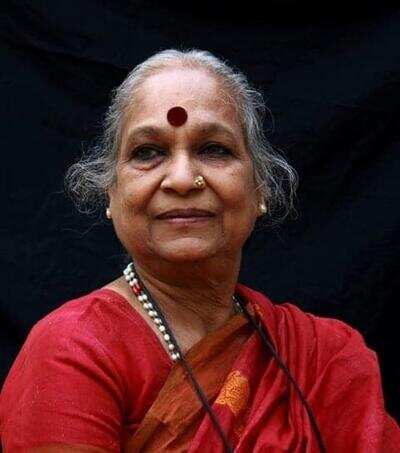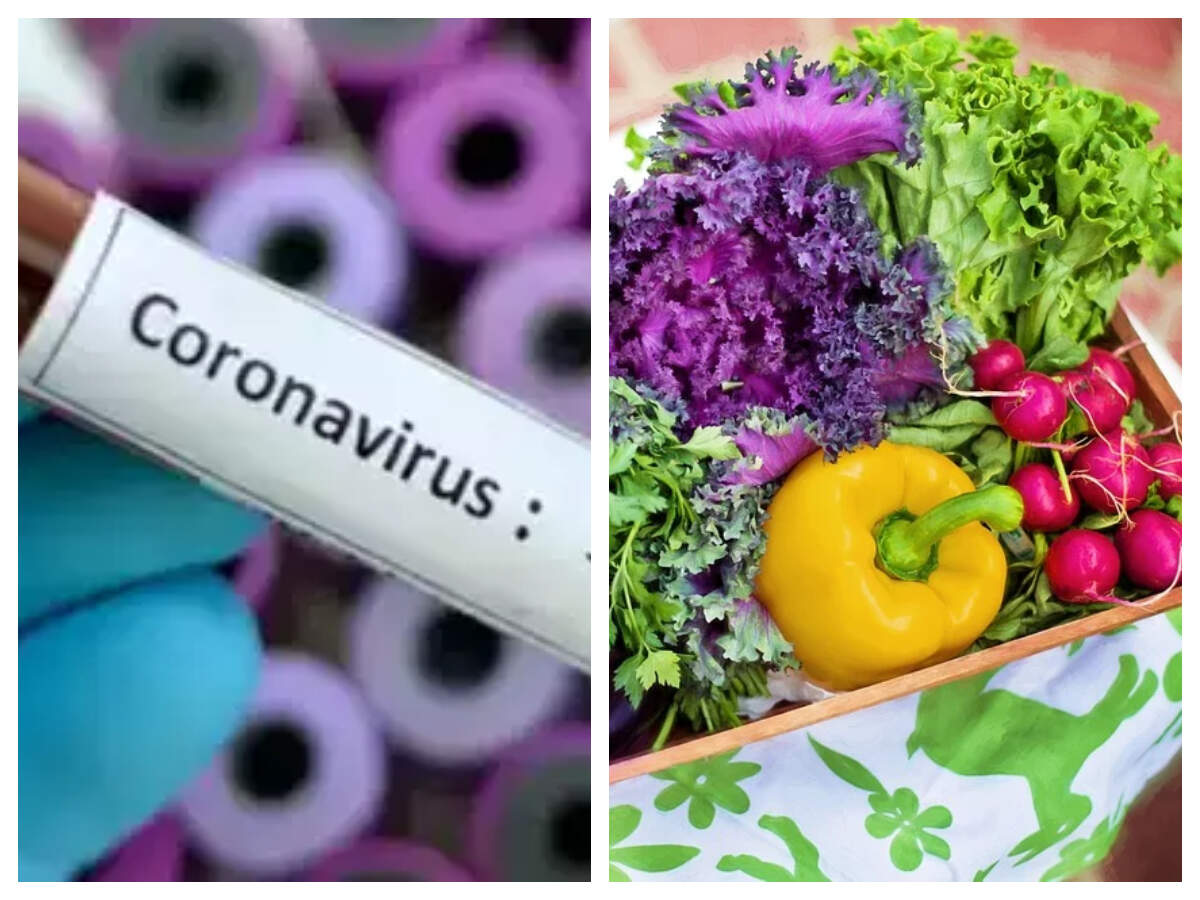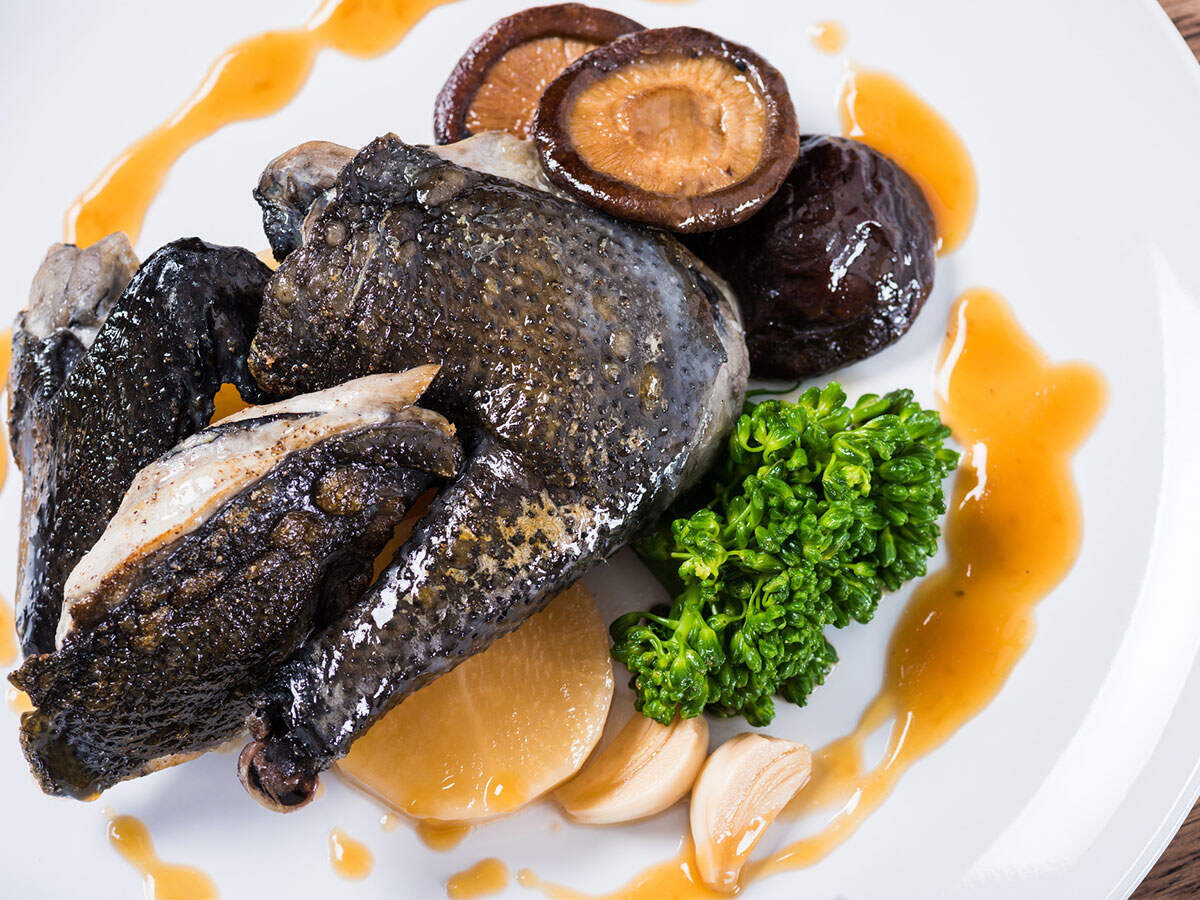
Men themselves have wondered what they see in me
They try so much but can’t touch my inner mystery
-- Maya Angelou | American poet
Bengaluru: Last week, Kannada writer Vijaya, popularly known as Vijayamma, received the Central Sahitya Akademi Award for her autobiography ‘Kudi Esaru.’ The award for the 78-year-old writer - who also happens to be a journalist, an activist, an academician, a publisher and a film critic - is a long overdue salute to the never-say-die spirit of all those women who live inspiring lives, fighting adversity, challenging stereotypes, questioning gender bias and refusing to be bogged down by hegemonic masculinity that conspires to silence their voice at every step. The prestigious award is also a recognition for women’s autobiographical writing in Kannada, which has emerged as a powerful form of feminist literature in recent years.
“It is not easy to document memories. It is a painful process,” writes Vijaya in the opening pages of her autobiography. The intensity of her pain and suffering shakes readers to the core. Utter poverty in childhood, domestic violence, sexual torture at the hands of the man she was married to and a series of forced abortions leave such an unsettling feeling among readers that one would wonder how anyone could even survive after going through such a trauma. But Vijaya not just survives, she thrives. Through sheer grit and determination she rises like a phoenix from the ashes and soars high into the sky, turning her story of misery into one of success and glory.
Initially reluctant to pen her autobiography, Vijayamma says she finally yielded to plenty of persuasion by her sons, friends and relatives. And as she sat down to write, a plethora of questions pervaded her mind: “After all, why should I write? Whom would it benefit? Aren’t there other women who have bigger achievements to their credit than me and who have undergone worse sufferings? Or am I scared to put my private experiences in public domain? Scared of whom?”
Such questions have indeed been the historical reasons for the delay in the process of women’s autobiographical works taking shape as a full-fledged genre in world literature. Critics observe that even in the western world, while powerful men of the 18th century like Benjamin Franklin wrote their autobiographies glorifying themselves as role models, any significant attempts by women achievers to document their life began only in 1960s, albeit with hesitance, modesty and self- effacement.
In her critical essay published in the book ‘Iruvanthige’ (ed. Savitha Nagabhushan, Tarini Shubhadayini) Geeta Vasanth, assistant professor at Tumkur University, points out that Kannada literary world had to wait till late 1970s for women’s autobiographies to emerge. Initially their numbers were few and far as compared to Marathi but swelled significantly in the 21st century. Guru Dutt’s mother Vasanthi Padukone’s ‘Jeevana Horata,’ written in 1977, is probably the first ever autobiography by a woman in Kannada. Then came the autobiography of Parvatamma Mahalingashetti (daughter of former chief minister Nijalingappa), which made a commendable effort to record the domestic, social and economic condition of women in the 20th century.
In 2008, writer Vaidehi chronicled some memoirs of Saraswatibai Rajwade, a 20th century child actor and writer from Dakshina Kannada. A childhood spent in penury, Saraswati’s marriage at the age of 15 to the deputy collector of Thanjavur did bring her riches but confined her to home. Her insecure husband, a widower 37 years older than her, would lock her up while he left for work, hanging a ‘Not at Home’ board outside. When his suspicious nature crossed all limits of decency, a disgusted Saraswati yanked the mangalasutra from her neck and flung it on his face. In her pain and loneliness, she took to books and also began to write and became an accomplished writer under the pen name ‘Giribaale.’
Work-life balance
As women became more educated and started pursuing their chosen professions, striking a work-life balance threw new challenges. In her life story written in the format of a novel, Shashikala Vastrad exposes man’s fragile ego which gets bruised for the simple fact that his wife is working, talented and has an independent personality. His manhood finds its fulfilment in clipping her wings. And even when the spouse is understanding and supportive, woman finds it difficult to focus on her career because childcare and household chores are considered her ‘department,’ and claim most of her time. In fact, marriage itself is like a speed-breaker in a woman’s life. The joy of motherhood often comes at the cost of career. Missed opportunities remain a source of regret. The autobiographies of physician-writer Anupama Niranjan and theatre personality Bhargavi Narayan effectively bring these issues to fore.
When personal is political
“Behind every successful man there is a woman, and behind every successful woman there is a dissatisfied man,” so reads a line from a poem by Prathibha Nandakumar. With her daring and ultra-modern poems like ‘Naavu Hudigiyare Heege’(This Is How We Girls Are, 1977) Prathibha created a stir four decades ago and when she published her autobiography ‘Anudinada Antaragange’ in 2012 she gave a new twist and turn to women’s writing in Kannada. In what was a reminder of the response to Malayalam writer Kamala Das’s ‘My Story,’ Prathibha’s bold and riveting account evoked severe reactions of admiration and criticism as she upheld her personal self and candidly wrote about her sensuality, passions, trials of marriage, indulgent relationships, eternal search for love and self-awakening.
“In case of men, relationships outside marriage are looked at as an extension of their experience, whereas the same is considered a crime in case of women,” observes Geeta Vasanth. Taking on the patriarchal ideologies that tend to decide how a woman should walk, talk and live, theatre personality, actor and former minister Umashri, a born fighter, lets out her anguish in her memoirs ‘Benki-Bedagu’: “I damn this heartless society which is always on its toes to cast aspersions on a woman’s character instead of valuing her struggle and hard work.”
These empowering stories of women from different walks of life are also excellent social commentaries of their times, documenting a wide range of issues like poverty, women’s education, literary and cultural movements, theatre, cinema, healthcare, political ideologies, growth of media, trade unions, religious practices and traditions and so on. Fighting male dominance that ranges from passive aggressiveness to tyranny, these women of substance derive their strength from within and celebrate life, being a source of inspiration to many. Their stories do not remain their stories alone. The individual becomes collective and the personal becomes political. For instance, when theatre personality and former Rajya Sabha MP B Jayashri recalls in her autobiography the horror of her step-father attempting to sexually abuse her in her adolescent days, or when she regrets the fact that nobody in her family ever bothered to get her admitted to a formal school, she speaks not just about herself. Her powerful voice represents the plight of lakhs of voiceless girls in the country and calls for political attention and legal address.
And for those men who criticize that kitchen, children and household chores still occupy much space in women’s autobiographies, here’s a quote by Facebook COO Sheryl Sandberg: “A truly equal world would be one where women ran half our countries and companies and men half our homes.” The campaign theme of International Women’s Day - 2020 is ‘Each for Equal.’ Collectively each one can help create a gender equal world. So, are we game?
EMPOWERING VOICES
Should I call my life’s journey ‘A saga of a deserted woman?’ No. I don’t like the words ‘deserted’ and ‘abandoned.’ I leave it to the readers to decide what it is – Vijaya
No doubt women are now economically independent and have achieved social standing. Yet, a conflict still goes on in their minds between ‘them and society’ – B Jayashri
If something is being denied to you simply because you are a woman, then it needs to be protested – Prathibha Nandakumar
AN INSPIRING JOURNEY
Born in 1942, Vijaya lost her mother early in life and grew up amidst pangs of poverty. She got married at a young age while pursuing her matriculation. Sexual, emotional and physical abuse turned her married life into hell. But she did not succumb. She rose from the mire, took life head on, raised her two sons as a single parent, continued her college education after divorce, completed her postgraduation and PhD in Kannada literature, and rose to fame as a fiction and non-fiction writer and film critic. She set up her own printing press and encouraged budding writers. She introduced several talents to Kannada film industry. As an activist she brought hopes in the lives of women garment workers and pourakarmikas. Many accolades came her way including the State and Central Sahitya Akademi Awards and the Rajyotsava Award. ‘Kudi Esaru,’ (Boiling Curry) is an objective account of her story as a fighter, survivor and achiever.
They try so much but can’t touch my inner mystery
-- Maya Angelou | American poet
Bengaluru: Last week, Kannada writer Vijaya, popularly known as Vijayamma, received the Central Sahitya Akademi Award for her autobiography ‘Kudi Esaru.’ The award for the 78-year-old writer - who also happens to be a journalist, an activist, an academician, a publisher and a film critic - is a long overdue salute to the never-say-die spirit of all those women who live inspiring lives, fighting adversity, challenging stereotypes, questioning gender bias and refusing to be bogged down by hegemonic masculinity that conspires to silence their voice at every step. The prestigious award is also a recognition for women’s autobiographical writing in Kannada, which has emerged as a powerful form of feminist literature in recent years.
“It is not easy to document memories. It is a painful process,” writes Vijaya in the opening pages of her autobiography. The intensity of her pain and suffering shakes readers to the core. Utter poverty in childhood, domestic violence, sexual torture at the hands of the man she was married to and a series of forced abortions leave such an unsettling feeling among readers that one would wonder how anyone could even survive after going through such a trauma. But Vijaya not just survives, she thrives. Through sheer grit and determination she rises like a phoenix from the ashes and soars high into the sky, turning her story of misery into one of success and glory.
Initially reluctant to pen her autobiography, Vijayamma says she finally yielded to plenty of persuasion by her sons, friends and relatives. And as she sat down to write, a plethora of questions pervaded her mind: “After all, why should I write? Whom would it benefit? Aren’t there other women who have bigger achievements to their credit than me and who have undergone worse sufferings? Or am I scared to put my private experiences in public domain? Scared of whom?”
Such questions have indeed been the historical reasons for the delay in the process of women’s autobiographical works taking shape as a full-fledged genre in world literature. Critics observe that even in the western world, while powerful men of the 18th century like Benjamin Franklin wrote their autobiographies glorifying themselves as role models, any significant attempts by women achievers to document their life began only in 1960s, albeit with hesitance, modesty and self- effacement.
In her critical essay published in the book ‘Iruvanthige’ (ed. Savitha Nagabhushan, Tarini Shubhadayini) Geeta Vasanth, assistant professor at Tumkur University, points out that Kannada literary world had to wait till late 1970s for women’s autobiographies to emerge. Initially their numbers were few and far as compared to Marathi but swelled significantly in the 21st century. Guru Dutt’s mother Vasanthi Padukone’s ‘Jeevana Horata,’ written in 1977, is probably the first ever autobiography by a woman in Kannada. Then came the autobiography of Parvatamma Mahalingashetti (daughter of former chief minister Nijalingappa), which made a commendable effort to record the domestic, social and economic condition of women in the 20th century.
In 2008, writer Vaidehi chronicled some memoirs of Saraswatibai Rajwade, a 20th century child actor and writer from Dakshina Kannada. A childhood spent in penury, Saraswati’s marriage at the age of 15 to the deputy collector of Thanjavur did bring her riches but confined her to home. Her insecure husband, a widower 37 years older than her, would lock her up while he left for work, hanging a ‘Not at Home’ board outside. When his suspicious nature crossed all limits of decency, a disgusted Saraswati yanked the mangalasutra from her neck and flung it on his face. In her pain and loneliness, she took to books and also began to write and became an accomplished writer under the pen name ‘Giribaale.’
Work-life balance
As women became more educated and started pursuing their chosen professions, striking a work-life balance threw new challenges. In her life story written in the format of a novel, Shashikala Vastrad exposes man’s fragile ego which gets bruised for the simple fact that his wife is working, talented and has an independent personality. His manhood finds its fulfilment in clipping her wings. And even when the spouse is understanding and supportive, woman finds it difficult to focus on her career because childcare and household chores are considered her ‘department,’ and claim most of her time. In fact, marriage itself is like a speed-breaker in a woman’s life. The joy of motherhood often comes at the cost of career. Missed opportunities remain a source of regret. The autobiographies of physician-writer Anupama Niranjan and theatre personality Bhargavi Narayan effectively bring these issues to fore.
When personal is political
“Behind every successful man there is a woman, and behind every successful woman there is a dissatisfied man,” so reads a line from a poem by Prathibha Nandakumar. With her daring and ultra-modern poems like ‘Naavu Hudigiyare Heege’(This Is How We Girls Are, 1977) Prathibha created a stir four decades ago and when she published her autobiography ‘Anudinada Antaragange’ in 2012 she gave a new twist and turn to women’s writing in Kannada. In what was a reminder of the response to Malayalam writer Kamala Das’s ‘My Story,’ Prathibha’s bold and riveting account evoked severe reactions of admiration and criticism as she upheld her personal self and candidly wrote about her sensuality, passions, trials of marriage, indulgent relationships, eternal search for love and self-awakening.
“In case of men, relationships outside marriage are looked at as an extension of their experience, whereas the same is considered a crime in case of women,” observes Geeta Vasanth. Taking on the patriarchal ideologies that tend to decide how a woman should walk, talk and live, theatre personality, actor and former minister Umashri, a born fighter, lets out her anguish in her memoirs ‘Benki-Bedagu’: “I damn this heartless society which is always on its toes to cast aspersions on a woman’s character instead of valuing her struggle and hard work.”
These empowering stories of women from different walks of life are also excellent social commentaries of their times, documenting a wide range of issues like poverty, women’s education, literary and cultural movements, theatre, cinema, healthcare, political ideologies, growth of media, trade unions, religious practices and traditions and so on. Fighting male dominance that ranges from passive aggressiveness to tyranny, these women of substance derive their strength from within and celebrate life, being a source of inspiration to many. Their stories do not remain their stories alone. The individual becomes collective and the personal becomes political. For instance, when theatre personality and former Rajya Sabha MP B Jayashri recalls in her autobiography the horror of her step-father attempting to sexually abuse her in her adolescent days, or when she regrets the fact that nobody in her family ever bothered to get her admitted to a formal school, she speaks not just about herself. Her powerful voice represents the plight of lakhs of voiceless girls in the country and calls for political attention and legal address.
And for those men who criticize that kitchen, children and household chores still occupy much space in women’s autobiographies, here’s a quote by Facebook COO Sheryl Sandberg: “A truly equal world would be one where women ran half our countries and companies and men half our homes.” The campaign theme of International Women’s Day - 2020 is ‘Each for Equal.’ Collectively each one can help create a gender equal world. So, are we game?
EMPOWERING VOICES
Should I call my life’s journey ‘A saga of a deserted woman?’ No. I don’t like the words ‘deserted’ and ‘abandoned.’ I leave it to the readers to decide what it is – Vijaya
No doubt women are now economically independent and have achieved social standing. Yet, a conflict still goes on in their minds between ‘them and society’ – B Jayashri
If something is being denied to you simply because you are a woman, then it needs to be protested – Prathibha Nandakumar
AN INSPIRING JOURNEY
Born in 1942, Vijaya lost her mother early in life and grew up amidst pangs of poverty. She got married at a young age while pursuing her matriculation. Sexual, emotional and physical abuse turned her married life into hell. But she did not succumb. She rose from the mire, took life head on, raised her two sons as a single parent, continued her college education after divorce, completed her postgraduation and PhD in Kannada literature, and rose to fame as a fiction and non-fiction writer and film critic. She set up her own printing press and encouraged budding writers. She introduced several talents to Kannada film industry. As an activist she brought hopes in the lives of women garment workers and pourakarmikas. Many accolades came her way including the State and Central Sahitya Akademi Awards and the Rajyotsava Award. ‘Kudi Esaru,’ (Boiling Curry) is an objective account of her story as a fighter, survivor and achiever.
Trending Topics
LATEST VIDEOS
More from TOI
Navbharat Times
Featured Today in Travel
Get the app







